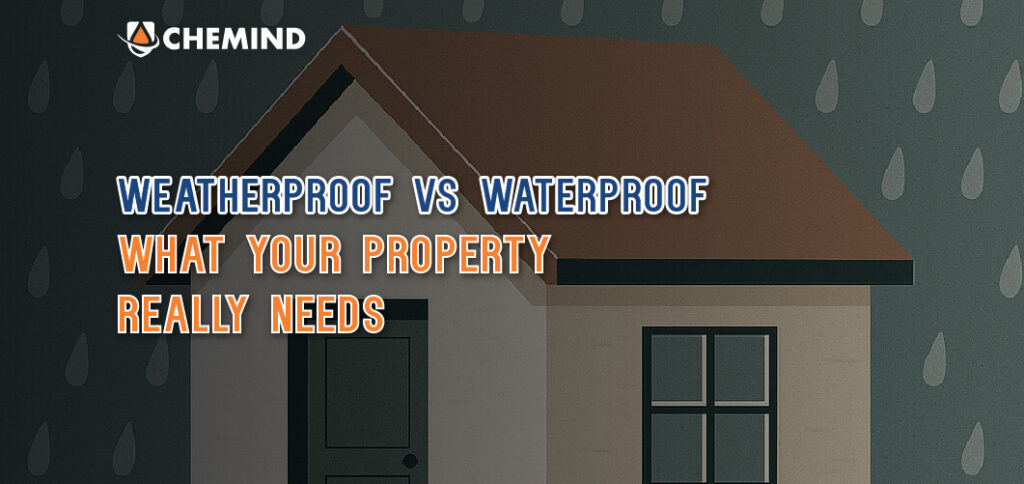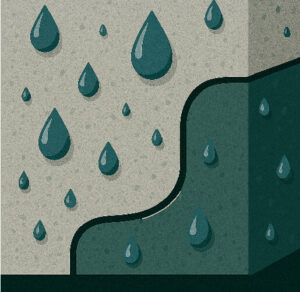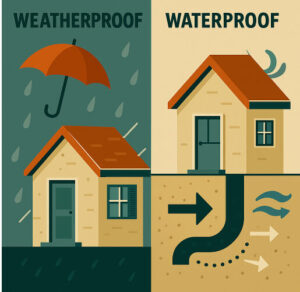
When it comes to protecting your home—or any building—against the elements, people often use the words “waterproof” and “weatherproof” like they’re the same. But they actually not. And knowing the difference can really help you make better decisions for your home, especially with Malaysia’s kind of weather.

So, What’s the Difference?
Waterproofing basically means that no water can go through—like, at all. It’s completely sealed. Even if it rains for hours or days, nothing gets in. This is important for things like basements, concrete roofs, or bathrooms where water is always around.
Weatherproofing, on the other hand, is more about resisting the weather—like rain, wind, sun, and even humidity. It doesn’t fully block out water, but it helps the structure survive without getting damage too fast. Think outdoor walls or fences.
Where Each One Matters
If you’re working on your bathroom floor, roof slab, or basement, what you need is waterproofing. Something like Chemflex R100—works great for that. It sticks well, resists water pressure, and last longer.
But if you’re dealing with external walls, awnings, or outdoor wooden panels, weatherproofing will be enough. It helps materials last longer by protecting them from sun and rain, but don’t expect it to stop water completely.
Why You Should Care
Getting this wrong can cost you—literally.
Not using the right protection can lead to:
- Dampness on walls
- Paint peeling off
- Mold problems
- Concrete damage
- Expensive repairs
Using weatherproof coating in a place that needs real waterproofing? That’s like using an umbrella inside a swimming pool.

What Chemind Recommends
At Chemind Industries, we believe different areas need different kind of protection.
If water is pooling or soaking the area—go for waterproofing. Our Chemflex-R100 is made for that, with flexible and long-lasting performance.
But if the area just needs to handle regular rain or sun, weatherproofing options like protective paint or sealants will do.
Final Thought
Both types of protection are important. But they’re not the same thing.
At Chemind, we help you pick the right solution for the right job—because even the best product won’t work if you use it the wrong way.
